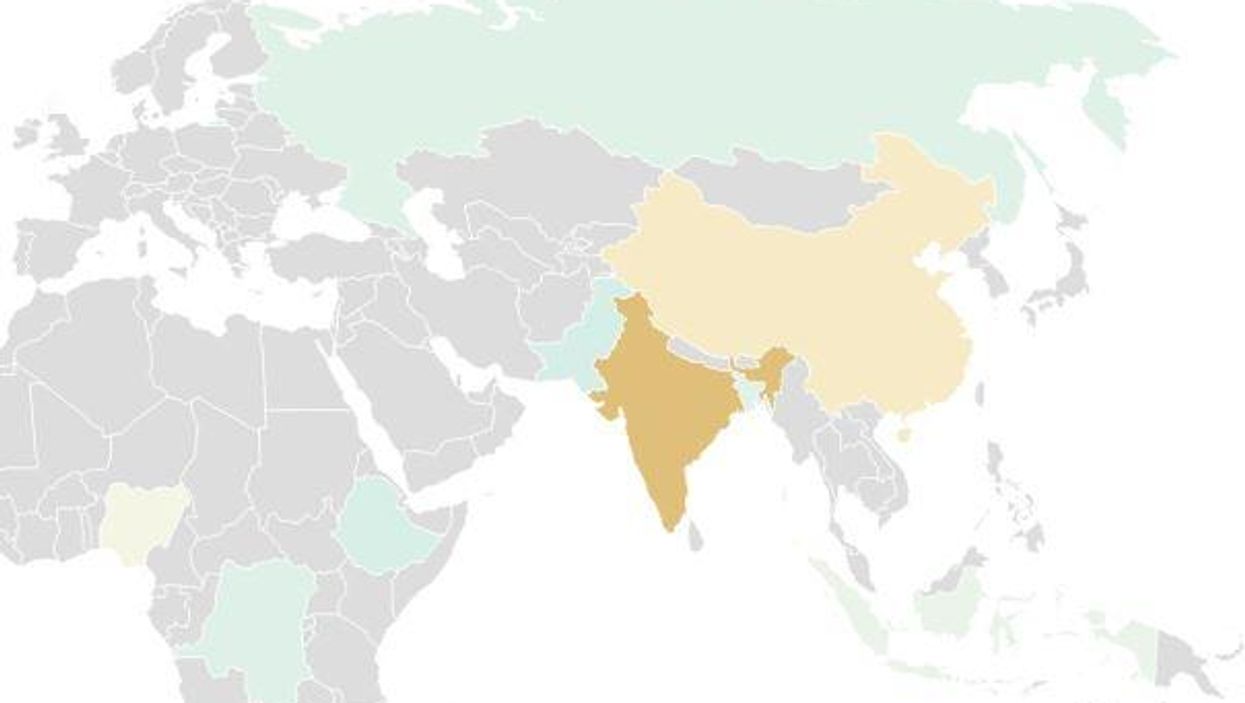News
Joe Vesey-Byrne
Nov 19, 2016

This is why World Toilet Day is possibly the most important day of the year.
While it might sound like a spurious cause, World Toilet Day is an important reminder that plumbing and sanitation are a blessing many take for granted.
The chairty WaterAid has investigated the places on earth where it's most difficult to find a safe, private toilet.
Research by the charity has also found that more than 100 million people on earth are forced to practise what's known as 'open defecation' - using roadsides, railway tracks, or plastic bags as a toilet.
The 10 countries on earth where the highest proportion of urban-dwellers do not have access to a safe, or private toilet, are located in Africa.
In the entire world, these are the places where the largest number of people do not have access to proper sanitation.
India and China with their large populations come at the top of this list. Their rapidly growing urban populations can often outpace the building of infrastructure.
WaterAid also identified the five main reasons that people in cities are living without access to a toilet.
- Patchy coverage of the sewage system in poorer areas.
- Politicians prefer to spend infrastructure money on less grim projects such as roads, railways, bridges, and energy plants.
- Legal issues regarding land tenure mean nobody is made responsible for providing sanitation.
- Poor maintenance where sewage systems do exist.
- Technical challenges when communities live on flood planes or low lying land.
WaterAid chief executive Barbara Frost said:
For the first time in history, more people around the globe are now living in cities. Cities should be a place for sustainable lifestyles offering healthy living, good infrastructure, wellbeing and economic growth. But the reality is that one person in every five living in a town or city today does not have access to a toilet or good sanitation and many live in poverty in overcrowded, rapidly expanding informal settlements.
Not having access to toilets can be especially harming for women and girls, who are often expected to wait until the evening to defecate, and are more vulnerable to attack or rape. In addition, many girls drop out of education when they start having periods because of inadequate sanitation networks at their schools.
Not only does this [absence of sanitation] lead to a lack of dignity for women and girls and health risks to poor families, this lack of sanitation also threatens the health and security of all city dwellers and leads to pollution of rivers and water sources.
WaterAid has also released a list of the most-improved countries between 2000 and 2015: those who brought sanitation to 100,000s of people.
Frost called for existing pledges on sanitation to be better enforced.
This World Toilet Day, we are calling on national leaders to deliver on their promises to meet the UN’s Global Goal 6 to ensure access to safe water and sanitation.
Everyone has the right to affordable access to these basic services that will lead to better lives and drive prosperity.
More: These amazing loo roll cityscapes are raising awareness for World Toilet Day
More: 10 unstranslatable foreign words we need to start using in English immediately
Top 100
The Conversation (0)













